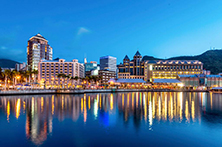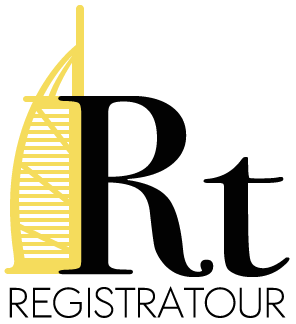 The Republic of Mauritius is an island nation in the Indian Ocean about 2,000 km off the southeast coast of the African continent. Since independence in 1968, Mauritius has developed from a low-income, agriculture-based economy to a middle-income diversified economy. The economy is based on tourism, textiles, sugar, and financial services.
The Republic of Mauritius is an island nation in the Indian Ocean about 2,000 km off the southeast coast of the African continent. Since independence in 1968, Mauritius has developed from a low-income, agriculture-based economy to a middle-income diversified economy. The economy is based on tourism, textiles, sugar, and financial services.
Mauritius is ranked high in terms of economic competitiveness, a friendly investment climate, good governance and a free economy. This has led to the rise of a stable and growing financial services sector, which has become one of the top banking destinations for people doing business on the African continent, and recently became a popular offshore banking center for European clients due to a high quality financial services offering and confidentiality.
Mauritius has over 25 commercial banks, 18 authorized custodians, and numerous licensed money service businesses. The Central Bank of Mauritius and the Financial Services Commission are the financial services regulators in Mauritius.
Laws and Regulations
Laws governing the Mauritian penal system are part French civil law and British common law. By 2011, the financial services sector made up 15 per cent of gross domestic product, with global business accounting for 5 per cent. It employs 15,000 people. Its membership of the African Union and the Southern African Development Community provide preferential access to markets in Africa, Europe and the US. A recent study by the Commonwealth Secretariat found that Mauritius was one of the most highly regulated international financial centres in the developing world, scoring well ahead of its main rivals Singapore and Cyprus.
Bank Secrecy
Mauritius is ranked at 19th position on the 2014 Financial Secrecy Index. Mauritius accounts for less than 10 of the global market for offshore financial services, making it a medium sized player amongst secrecy jurisdictions, with a very high potential for further growth. It is estimated that in 2014 Mauritius held over $60 billion in assets and deposits because of tight secrecy. Mauritius does not disclose or prevent trusts and private foundations, does not maintain company ownership details in official record, nor require that company ownership details or financial information are publicly available online. Mauritius’ popularity is stable and growing, with the jurisdiction being regarded as an stable and confidential centre for making deposits or holding assets while playing a full part in the modern international financial community.
Electronic Payments
Mauritius is a member of the Society for Worldwide Interbank Financial Telecommunication (SWIFT). The SWIFT network is the safest and most secure system for financial transactions worldwide.
Banking Facilities
Registratour has a relationship with an extensive network of private and major banks in Mauritius. All of the banks we refer our customers to offer a full international banking platform, with multi-currency accounts (£, €, $) as well as online banking and debit/credit cards, for both corporate and private bank accounts.
Once your order has been completed, you will be assigned a dedicated account manager that will guide you through the bank account opening procedure. Then, we will carefully select with you a bank from one of our leading partners, which perfectly fits your requirements like a tailored suit.
Which documents are needed to open a bank account?
As a general rule the bank asks for a certified passport copy of the shareholder(s) and director(s) (beneficial owners), a proof of address which must be less than three months old as well as a bank reference letter. If the client goes to the bank in person to open the account, a certified copy of the passport is not required.
We will send you the additional documents necessary for opening the account by email, as an attachment, for you to sign and return to us preferably by special courier ( DHL, FedEx), along with the other documents mentioned above.
